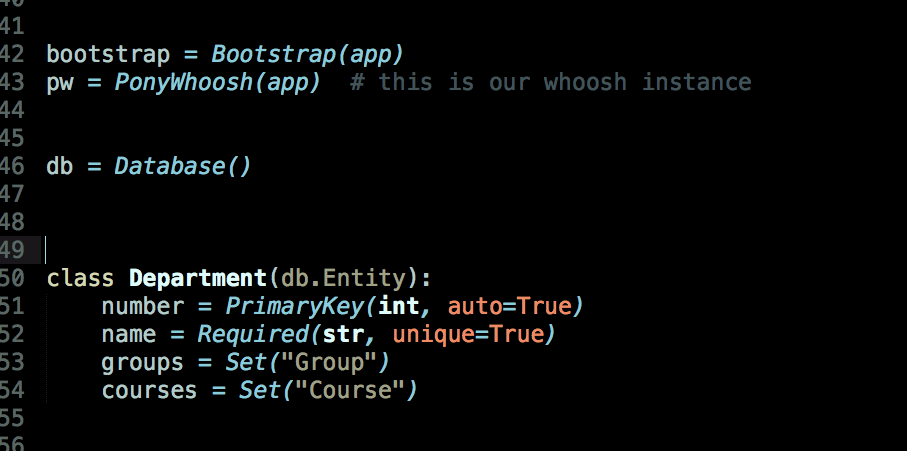Getting Started¶
PonyWhoosh Configuration¶
Initialize the Ponywhoosh object and if you want, set up some general configurations.
from ponywhoosh import Ponywhoosh
pw = PonyWhoosh()
pw.search_string_min_len= 3
pw.indexes_path='ponyindexes'
pw.writer_timeout= 2
These configurations set up the default folder to save the Indexes, if you want to activate debug, the minimun length of the string in the query, the time out (stop searching if is taking so much).
Database Configuration¶
Import ponywhoosh in your source code where you have the database entities definitions.
As we show above, the lines will be look like these:
from PonyWhoosh import PonyWhoosh
pw = PonyWhoosh()
For each entity wrap it up with the decorator
@pw.register_model(...). Specifying what attributes would be searcheables.
For example:
@pw.register_model('name','age', sortable=True, stored=True)
class User(db.Entity):
_table_ = 'User'
id = PrimaryKey(int, auto=True)
name = Required(unicode)
tipo = Optional(unicode)
age = Optional(int)
entries = Set("Entry")
attributes = Set("Attributes")
As you could see in the previous example, you should declare as strings these fields where you want search in the future and make them searcheables (name, age, etc.). All the parameters from whoosh are available, You just have to listed separating them with commas: sortable, stored, scored, etc. Refer to whoosh documentation for further explanations on the application of these parameters.

